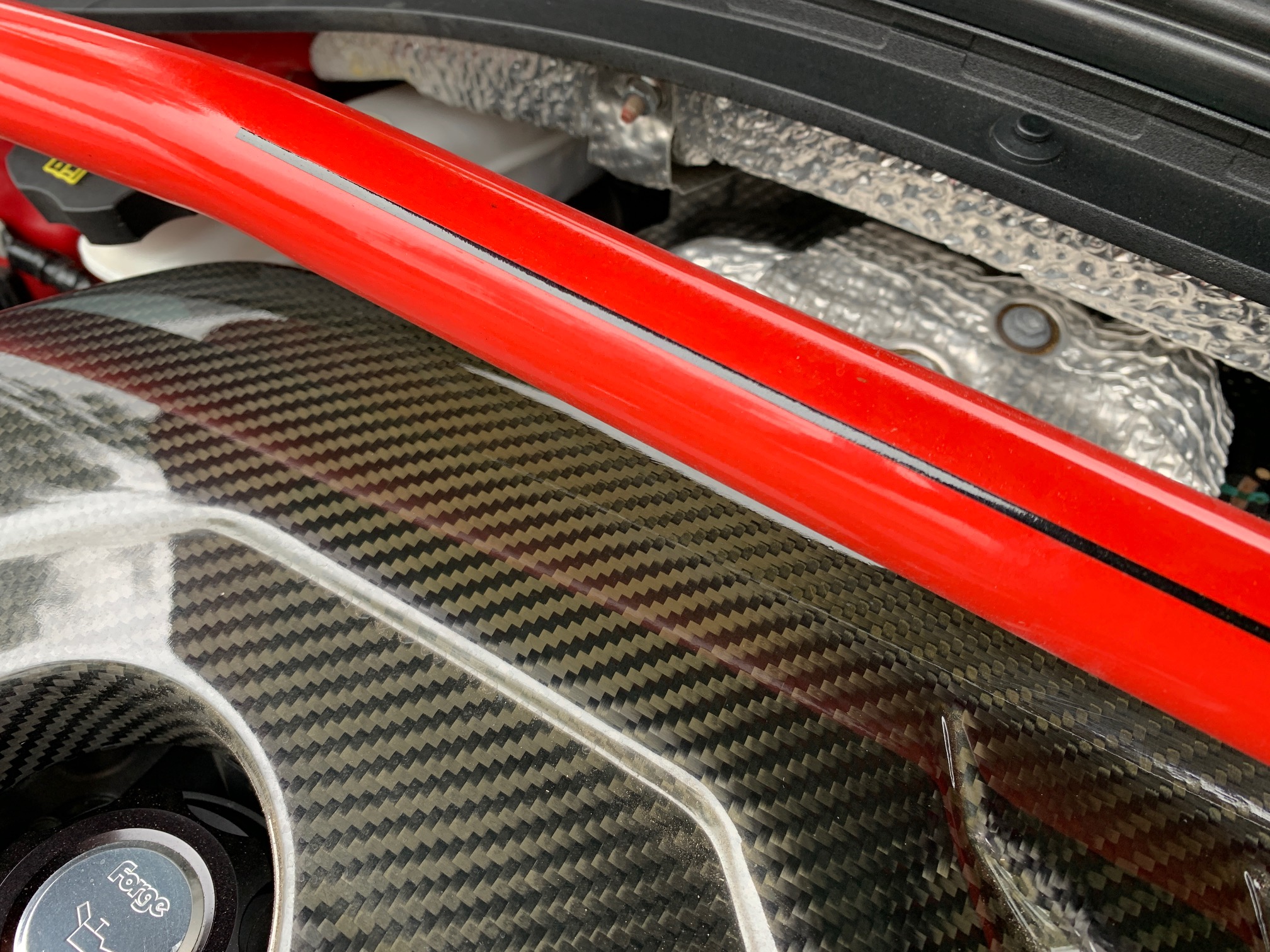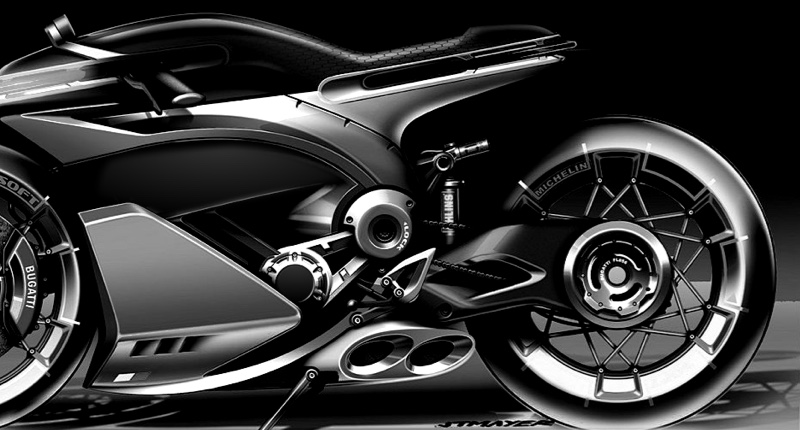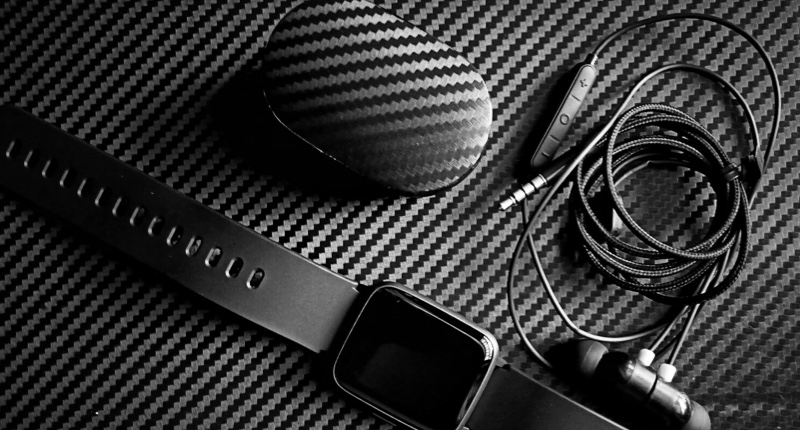Research on the Causes of Yellowing of Carbon Fiber Products.
Carbon fiber products are highly valued for their strength, lightweight properties, and aesthetic appeal. However, over time, many users have observed yellowing or discoloration in these products. This phenomenon is primarily attributed to the degradation of the resin matrix that holds the carbon fibers together. Understanding the causes of this yellowing is crucial for developing strategies to prevent it and enhance the longevity and appearance of carbon fiber products.

Primary Causes of Yellowing
Ultraviolet (UV) Radiation
UV radiation is one of the most significant contributors to the yellowing of carbon fiber products. The carbon fibers themselves are generally resistant to UV radiation, but the resin matrix is not. When exposed to UV light, the resin undergoes a photochemical reaction that breaks down its polymer chains. This degradation process leads to a change in the chemical structure of the resin, resulting in a yellowish tint. The extent of yellowing is influenced by the intensity and duration of UV exposure.
Thermal Degradation
Heat accelerates the degradation of the resin matrix. Prolonged exposure to high temperatures causes the resin to undergo thermal oxidation, a process where the material reacts with oxygen at elevated temperatures. This reaction results in the breakdown of the resin's molecular structure, leading to discoloration and a loss of mechanical properties. Thermal cycling, where the material is repeatedly exposed to fluctuating temperatures, can exacerbate this effect.
Oxidation
Oxidation is a chemical reaction that occurs when the resin is exposed to oxygen over time. This process can be slow but persistent, leading to gradual discoloration. The presence of moisture and elevated temperatures can accelerate oxidative degradation. The resin's susceptibility to oxidation depends on its chemical composition and the presence of antioxidants or stabilizers.
Chemical Exposure
Exposure to certain chemicals, such as solvents, acids, and bases, can degrade the resin matrix. These chemicals can cause hydrolysis or other reactions that break down the polymer chains, leading to yellowing. Even mild chemicals, such as those found in cleaning agents, can contribute to this degradation if the resin is not chemically resistant.
Quality of Resin
The type and quality of the resin used in carbon fiber composites play a crucial role in their durability and resistance to yellowing. High-quality resins are formulated with additives such as UV stabilizers, antioxidants, and heat-resistant compounds that enhance their stability. Lower quality resins, lacking these protective additives, are more prone to degradation and discoloration.
Several research studies have investigated the causes and prevention of yellowing in carbon fiber products. These studies often focus on the following areas:
UV Stabilizers and Coatings
Research has shown that incorporating UV stabilizers into the resin matrix or applying UV-resistant coatings can significantly reduce yellowing. These stabilizers absorb or block UV radiation, preventing it from reaching the polymer chains. Studies have demonstrated the effectiveness of various UV absorbers and hindered amine light stabilizers (HALS) in protecting the resin from UV-induced degradation.
Thermal Aging Tests
Researchers conduct thermal aging tests to understand the effects of prolonged heat exposure on resin degradation. These tests involve subjecting carbon fiber composites to elevated temperatures for extended periods and analyzing the changes in their mechanical properties and appearance. The results help in developing heat-resistant resins and identifying suitable operating temperature ranges for carbon fiber products.
Chemical Resistance Evaluations
Evaluating the chemical resistance of different resin formulations helps identify those that are less susceptible to degradation from chemical exposure. These evaluations involve exposing the resin to various chemicals and measuring changes in color, mechanical properties, and molecular structure. The findings guide the selection of resins for applications where chemical exposure is a concern.
Oxidative Stability Testing
Studies on oxidative stability involve exposing the resin to oxygen and elevated temperatures to simulate long-term aging. These tests help in understanding the kinetics of oxidative degradation and the effectiveness of antioxidants in preventing discoloration. The results aid in formulating resins with enhanced oxidative stability.
Conclusion
The yellowing of carbon fiber products is primarily caused by UV radiation, thermal degradation, oxidation, chemical exposure, and the quality of the resin used. Ongoing research aims to develop more durable resins and protective measures to mitigate these effects. By understanding these causes and implementing preventive strategies, manufacturers can enhance the longevity and aesthetic appeal of carbon fiber products, ensuring they remain a preferred choice for high-performance applications.

Xiaomi SU7 Carbon Fiber Aerodynamic Body Kit – Supreem Carbon Testing Feedback

Custom Xiaomi SU7 Carbon Fiber Parts – Supreem Carbon

Supreem carbon Auto part new arrivals

Ultimate Guide to Custom Carbon Fiber Car Parts (Performance, Process & Buying Tips)

100% Carbon fiber dash panel and window door trims set new arrivals!

Understanding the Difference Between Dry Carbon and Wet Carbon Products
For After-sales Service
Do you offer a warranty?
Six month standard warranty on all products. Damage due to installation error or natural elements will not be covered.
What can I do if the carbon fiber products arrived is broken?
Please give us feedback as soon as possible and we will send new one to you.
For Products
Supreem Carbon parts produce by 100% carbon?
Yes,all products are made from full carbon with dry carbon.
Which surface could you provide for the carbon parts?
Gloss finish, matte finish, satin finish. Some color coating as the customer needs.
For Customized Service
What is the customization process of carbon fiber products?
1. Customer provide 3D drawing, design requirement or idea
2. Technician evaluate project feasibility and provide a quotation
3. Project confirmation and arrange sample production
4. Delivery and customer feedback
5. Big scale orders production

Kawasaki ZX10R Carbon Fiber Belly Pan
The carbon fiber belly pan reduces the weight of the car body and provides a unique visual effect. It improves motorcycle performance and provides an excellent driving experience. It is handmade with 100% dry carbon technology and perfectly matches the original car accessories. You can replace the ABS directly.

Kawasaki Z650 Carbon Fiber Tank Side Panels

BMW S1000RR Carbon Fiber Lower Side Fairings Custom

Ducati Desert X Carbon Fiber Sprocket Cover
Let’s Bring Your Carbon Fiber Ideas to Life
Have a question or inquiry about our carbon fiber composite products? Leave us a message here, and our team will get back to you promptly.
Whether you're interested in custom orders, technical specifications, or partnership opportunities, we're here to assist you.
Please fill out the fields above with your name, email address, and message.
© 2024 Supreem Carbon All Rights Reserved.





Facebook
Pinterest
LinkedIn
Instagram